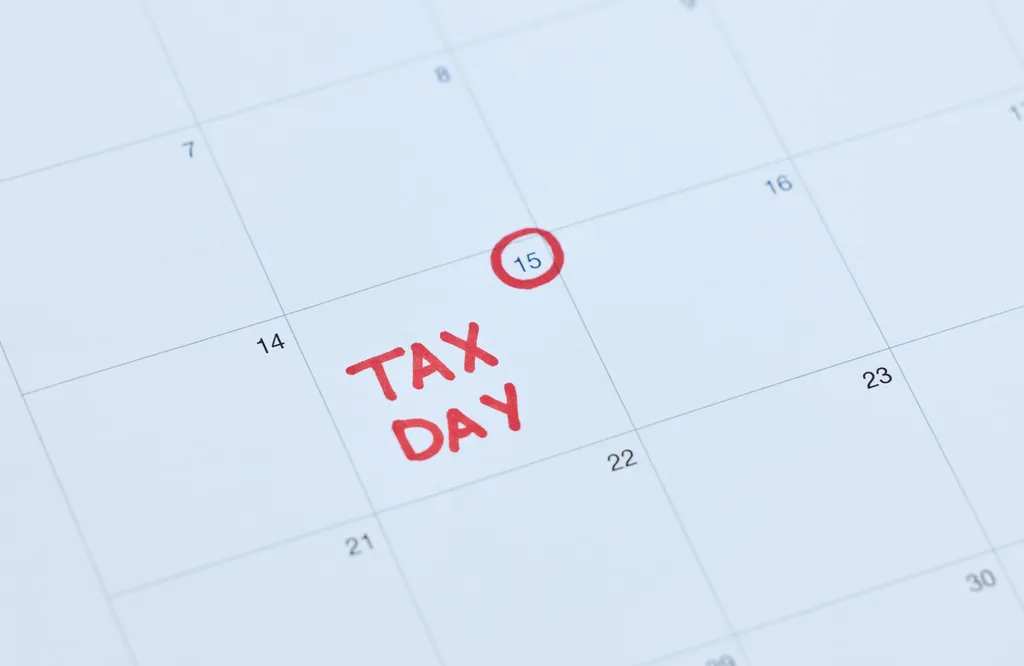Introduction
Funding needed? Saving and paying debt are hard. Study money and plan. Money advice for success and stability! This is often ignored but should be #1! This blog post will cover the most critical parts of financial literacy, why they’re essential for money management, and how they can help you reach your short-term goals and long-term peace of mind. Study money now!
What is financial literacy, and why is it important?
Understanding the importance of budgeting and how to create a budget?
Knowledge of Personal Taxes and Insurance:
Know how your income is taxed and what insurance you need to protect your finances. This includes knowing how to pay your taxes, what tax deductions and credits mean, and what insurance you need, such as health, car, and house insurance.
Understanding Investments and Retirement Planning:
For long-term financial stability, you need to know how to spend your money to make it grow and plan for your retirement. To do this, you must know different ways to spend your money, like stocks, bonds, and mutual funds. You also need to know how to plan for retirement, like what pension plans are and how a 401(k) or IRA can help you.
Debt Management:
One of the most important aspects of having enough financial literacy is dealing with debt successfully. This includes understanding the distinction between “good” and “bad” debt, effectively managing credit card debt, and comprehending the terms associated with loans and mortgages.
Savings and Emergency Funds:
It is essential to have a solid understanding of setting aside money consistently and maintaining a reserve fund for use in case of unforeseen costs. This entails being familiar with establishing savings goals, grasping the advantages of compound interest, and having a financial buffer in place.
Financial Products and Services:
It is essential to have a solid understanding of the numerous financial goods and services on the market. This involves being aware of the terms and conditions that apply to various products, such as loans, credit cards, and savings accounts, and the ability to select the solutions most suitable to your specific requirements.
A complete understanding of financial literacy requires having a firm grasp on all of these aspects, each of which plays an important part in the process. I need your information and abilities in the abovementioned areas to manage your funds successfully.
Learning what investments are and how to invest wisely
If you can understand how investments function and how to make prudent use of them, they are a potent tool for increasing wealth. There is a way to put money into something, hoping to get it back at some point in the future. This is called “investing.”
Understanding Different Types of Investments:
There is a diverse selection of opportunities for financial investing, each with its own risk and return profile. Financial investments include stocks, bonds, mutual funds, commodities, and real estate. It is essential to have a solid understanding of the inner workings of these various investments and their potential benefits and drawbacks.
Risk Tolerance and Investment Goals:
Before you begin investing, you should determine how much exposure to risk you are willing to accept, often known as your risk tolerance, and be very clear about what you want to achieve with your money. Do you intend to invest for long-term growth, or do you require income soon? The level of risk you are willing to take and the objectives you wish to achieve will help direct your investment choices.
Diversification:
A method for lowering the level of risk associated with an investment portfolio by diversifying the types and types of assets in which it is invested. If the performance of one investment is poor, the performance of other investments may be strong, which will assist in offsetting any potential losses.
Regular Monitoring and Adjustment:
Investment markets tend to be volatile and subject to sudden shifts. I want you to know that maintaining consistency between your risk tolerance and the nature of your assets can be facilitated by doing routine checks on your holdings and making any required modifications.
Working with a Professional:
Working with a financial advisor or an investment professional can be beneficial when making investments because investing can be a challenging endeavor. They can offer direction, support you in developing an investment strategy, and assist with investing decision-making.
Please keep in mind that investing always involves risk, including the possibility of losing principles, and that before making decisions about investments, it is essential to conduct in-depth research and seriously consider seeking the advice of a seasoned financial professional.
Mastering the basics of credit, such as when to use it
A basic financial literacy component is understanding and effectively managing credit. It is essential to have a solid understanding of the function that credit plays in one’s overall financial health, as well as the skills necessary to make responsible use of credit to avoid falling into debt traps.
Understanding Credit:
Credit is a mechanism that enables one to borrow monetary resources or other assets in the here and now in exchange for a promise to repay the loan at a later period, typically with interest. When properly applied, it has the potential to be an extremely useful financial tool; yet, if it is not managed carefully, it can also lead to serious financial issues.
Building Credit:
A person’s credit history can affect their ability to borrow money, buy a house, rent an apartment, or get a job. Therefore, a good credit history is essential. Building credit requires early bill payment, restriction in credit use, and maintenance of long-standing accounts.
Avoiding Debt Traps:
Staying clear of precarious financial situations is essential to effective credit management. This entails not borrowing more money than you can afford to repay, staying away from credit cards with high-interest rates, and not depending on credit for day-to-day expenditures.
Understanding Credit Scores:
Your credit score is a numerical rating based on your credit history and represents how creditworthy you are in the eyes of lenders. You must check your credit score and report regularly to verify that they are correct and that you take action to enhance your score if necessary.
Using Credit Cards Wisely:
Credit cards have the potential to be a helpful instrument for constructing credit and earning incentives. Still, they also have the potential to lead to debt if they are not used appropriately. You must be familiar with the rules of your credit card, pay off your debt in full every month, and charge at most you can afford to repay.
Learning the fundamentals of credit allows one to make more educated and responsible decisions regarding one’s finances, ultimately leading to increased financial health and stability.
Knowing what your financial goals are and creating a plan to reach them
To effectively manage your finances, you must define your monetary objectives and devise a strategy for reaching those objectives. This requires you to know your existing financial status, to have set goals that are attainable and measurable, and to have created a budget that will assist you in achieving those goals.
Assessing Your Financial Situation:
It’s necessary to evaluate your present financial condition by considering your income, expenses, assets, and obligations before you try to create any financial goals for yourself. This will give you an accurate depiction of your current situation and help you find areas in which you may make improvements.
Setting Realistic Goals:
It is necessary to establish sensible monetary objectives that are SMART, which stands for specified, measurable, attainable, relevant, and time-bound. This can include objectives as short-term as putting money aside for an upcoming vacation or as long-term as making preparations to purchase a home or retire.
Creating a Budget:
A budget is a plan that outlines how you intend to distribute your money to meet your objectives for both spending and saving. It can assist you in keeping track of your expenditures, locating areas in which you can make reductions, and ensuring that you have sufficient funds to achieve your monetary objectives.
Regularly Reviewing and Adjusting:
I’d like you to know that your financial goals and budget should be looked over regularly and modified as required. Because one’s life and financial circumstances are subject to change, it is essential to maintain a flexible mindset and be prepared to adjust as required.
Seeking Professional Help:
Please feel free to seek the help of a financial counsellor or planner if you need help formulating a financial strategy or reaching your objectives. They can help you and help you with your particular situation, which can help you make informed decisions about your finances.
It is possible to improve both your financial stability and your state of mind by developing a strategy for achieving your financial objectives and having a good grasp of them. To successfully reach these goals, it is important to do regular reviews and make any necessary changes. It is also important to talk to experts as needed.
Managing your Taxes
Analyzing and controlling one’s tax burden is a key component of personal finance. It is important to know when your taxes are due, how to pay them, and what benefits you may get to lower the amount of money you have to pay in taxes.
Knowing Tax Deadlines:
To successfully manage your taxes, you must first know when payments are due. The US federal income tax deadline is usually April 15. However, it can vary based on the taxpayer’s condition. It would help if you stayed abreast of changes to tax deadlines.
Filing Your Taxes:
You must file your taxes on time and accurately to avoid fines and interest. To submit your taxes appropriately, utilize tax preparation software or a skilled tax preparer. You can file online or by mail.
Understanding Deductions and Credits:
Your taxable income and the amount of taxes you are responsible for paying can be lowered if you take advantage of tax deductions and credits. Donations to charitable organizations, mortgage interest, and educational costs are typical deductions.
Keeping Organized Records:
Well-organized records of income, expenses, and tax documents can simplify and improve tax filing. If there is an investigation or dispute, these records must be kept for three years.
Seeking Professional Help:
If you have a more complicated financial position, it may be in your best interest to seek the help of a tax specialist. This person will give you individualized guidance and assist you in making the most of your deductions and credits.
Developing an emergency fund so you’re prepared for life’s unexpected events
Establishing a fund for unexpected expenses is an essential part of financial planning. It acts as a safety net for unforeseen costs and can make it less likely that a person will need to rely on credit or loans during times of emergency.
Determining Your Emergency Fund Needs:
To establish a fund for unexpected expenses, you must first calculate how much money you will need to save. If you lose your job, have a serious illness, or experience any other kind of unexpected incident, financial advisors recommend having at least three to six months’ worth of expenses saved up.
Saving Consistently:
Setting away money routinely follows estimating your emergency reserve. Put away a specific proportion of your monthly salary, find ways to cut expenses, and reinvest the savings in an emergency savings account.
Keeping Your Emergency Fund Separate:
Maintaining a separate account for your emergency money from your ordinary savings account and checking account is essential. This can make it easier to resist the desire to spend money on things that aren’t urgent and ensures that it will be accessible whenever required.
Replenishing Your Emergency Fund:
Suppose you utilize some of your emergency funds and put as much back as possible soon. This will prepare you for future circumstances and protect your finances.
Reviewing Your Emergency Fund:
Regularly checking and adjusting your savings for unexpected situations is crucial. You should alter your emergency fund whenever your income or spending changes to ensure it is enough.
Establishing and maintaining an emergency fund is crucial to financial planning. If you follow these steps and save money, you may rest easy knowing you’re ready for anything.
Conclusion
Smart personal finance management involves budgeting, tracking income and expenditure, and creating realistic financial goals. It also involves regularly reviewing your financial plan, making changes, and seeking professional assistance. This consists of knowing your tax obligations when to file them, and what deductions you can take. An emergency fund and regular contributions help shield you from unexpected expenses. These strategies can enhance your finances and outlook.







